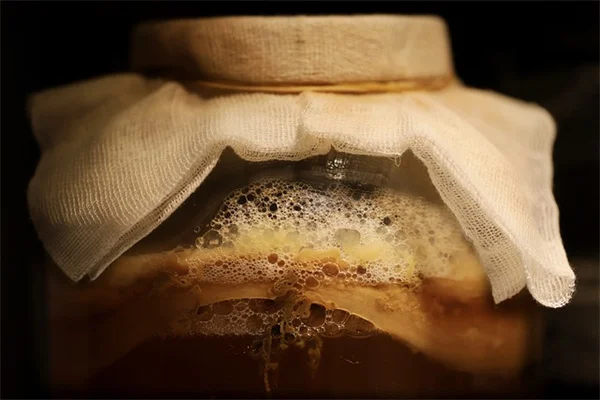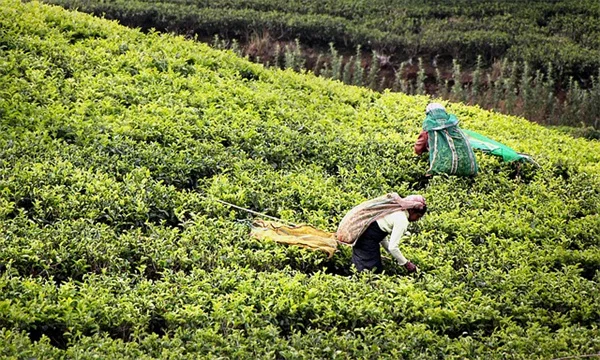RSV in Infants: 5 Critical Facts Every Parent Must Know
Advertisement
Is RSV dangerous for healthy babies? The answer might shock you: Yes, even perfectly healthy infants can develop severe RSV complications. New research reveals that 80% of babies hospitalized in ICUs for respiratory syncytial virus had no underlying conditions. As a parent myself, these findings hit close to home - that's why I'm breaking down everything you need to know about this silent threat.We often think only premature or immunocompromised babies are at risk, but the JAMA Network Open study of 600 ICU cases proves otherwise. RSV doesn't discriminate, says pediatrician Dr. Rebecca Fisk. Those tiny airways make every infant vulnerable. The good news? There are concrete steps we can take right now to protect our little ones as we head into peak RSV season.
E.g. :Bird Flu in Cats: 5 Must-Know Facts to Protect Your Pet
- 1、RSV: The Silent Threat to Healthy Babies
- 2、How RSV Sneaks Into Your Home
- 3、Fighting Back Against RSV
- 4、RSV Protection for the Whole Family
- 5、Beyond the Basics: Understanding RSV's Hidden Impacts
- 6、RSV Prevention: What Really Works
- 7、When RSV Strikes: Navigating the Illness
- 8、The Future of RSV Protection
- 9、FAQs
RSV: The Silent Threat to Healthy Babies
Why Should You Care About RSV?
Picture this: your perfectly healthy newborn suddenly struggles to breathe. That's the reality for thousands of families each RSV season. The latest research shows 80% of infants needing ICU care for RSV had no prior health issues. Doesn't that make you wonder why we're not talking about this more?
Let me break it down for you. RSV (respiratory syncytial virus) acts like a common cold for most adults - annoying but manageable. But for babies? Their tiny airways turn this virus into a potential nightmare. Dr. Fisk from Lenox Hill Hospital puts it perfectly: "It's like replacing their drinking straw with a coffee stirrer - every breath becomes a battle."
The Shocking Numbers Behind RSV
Check out these eye-opening statistics comparing RSV impact across age groups:
| Age Group | Annual Hospitalizations | ICU Admissions |
|---|---|---|
| Infants (0-6 months) | 50,000-80,000 | 20% of hospitalized |
| Children (6mo-5yrs) | 15,000-30,000 | 5-10% of hospitalized |
| Adults 60+ | 60,000-120,000 | 10-15% of hospitalized |
Notice how infants bear the brunt of this virus? That's why Vanderbilt's Dr. Schaffner calls RSV "the leading cause of infant hospitalization in America." And here's the kicker - most of these babies were completely healthy before RSV struck.
How RSV Sneaks Into Your Home
 Photos provided by pixabay
Photos provided by pixabay
The 4 Ways RSV Spreads
You might think RSV spreads like COVID, but it's actually more stubborn. Here's how it invades your space:
1. The Air Attack: When someone coughs or sneezes, those invisible droplets can float right into your baby's face. I've seen parents catch RSV from coworkers, then unknowingly bring it home.
2. The Surface Trap: RSV survives for hours on doorknobs, toys, even your phone. Ever seen a toddler put everything in their mouth? That's an RSV express lane!
When Is RSV Most Contagious?
Here's a scary thought - people spread RSV before they even feel sick. The virus party lasts 3-8 days typically, but babies? They might keep spreading it for weeks after symptoms fade. Makes you rethink taking your newborn to crowded places, doesn't it?
Let me explain why this matters. Unlike flu season with clear boundaries, RSV season varies by region. In most areas, it runs October through April, but some southern states see cases year-round. That unpredictability makes prevention crucial.
Fighting Back Against RSV
The New RSV Superhero: Monoclonal Antibodies
Great news just dropped - the FDA approved a game-changing preventive treatment called nirsevimab (we'll call it the RSV shield). This monthly shot could slash hospitalizations by 80%. But here's the catch...
Currently, only high-risk babies qualify. Yet the study shows most hospitalized infants were healthy. That's like only giving life jackets to people who can't swim, while everyone else drowns. Dr. Fisk puts it bluntly: "If it works, give it to everyone."
 Photos provided by pixabay
Photos provided by pixabay
The 4 Ways RSV Spreads
Until the RSV shield becomes widely available, here's your action plan:
1. Handwashing Boot Camp: Make it a family ritual. Sing "Happy Birthday" twice while scrubbing - it's the perfect timer. Pro tip: keep sanitizer by every changing table.
2. Surface Warfare: Wipe down high-touch areas daily. Think: doorknobs, light switches, and yes - your phone too. I keep disinfectant wipes in every room - it's saved my family multiple times.
3. Visitor Rules: No kissing baby's face or hands. Ask sick relatives to video call instead. My cousin still jokes about being "banished" during RSV season, but her niece stayed healthy.
RSV Protection for the Whole Family
Grandparents Need Protection Too
While we focus on babies, let's not forget seniors. The new RSV vaccine for adults 60+ could prevent thousands of hospitalizations. It's a single shot that can be given with flu or COVID vaccines.
My 65-year-old neighbor got her RSV vaccine last month. "Better safe than sorry," she said. Smart woman - she's seen too many friends land in the hospital after "just a cold."
Creating an RSV-Smart Household
Remember those COVID hygiene habits? Time to bring them back for RSV season:
- Designate "outside clothes" that get changed when coming home
- Keep shoes by the door (90% less floor germs!)
- Teach kids to cough into elbows (make it a game - "Dracula style!")
The bottom line? RSV doesn't discriminate between healthy and high-risk babies. But with smart prevention and new medical advances, we can protect our littlest ones. What steps will you take this RSV season?
Beyond the Basics: Understanding RSV's Hidden Impacts
 Photos provided by pixabay
Photos provided by pixabay
The 4 Ways RSV Spreads
Let me tell you about Sarah's story - her 3-month-old spent two weeks in the PICU with RSV. The emotional rollercoaster of watching your baby struggle to breathe leaves scars you can't see. Many parents develop anxiety that lasts long after recovery.
Here's something most people don't consider - the financial hit. Even with insurance, RSV hospitalizations often cost families $5,000+ in out-of-pocket expenses. That's not counting lost wages from missing work. Doesn't that make you rethink skipping those preventive measures?
Long-Term Effects We're Just Discovering
New research shows RSV might be more than just a temporary illness. Studies suggest babies hospitalized with severe RSV have higher risks of developing asthma later. It's like the virus leaves a "mark" on their developing lungs.
Let me paint the picture clearer. Imagine your child's lungs as a new highway system. RSV creates potholes that never fully repair, making future "traffic" (like pollen or cold air) cause more problems. That's why prevention today could mean healthier lungs for decades.
RSV Prevention: What Really Works
Beyond Handwashing - The Overlooked Strategies
Sure, everyone tells you to wash hands, but let's talk about the underrated prevention tactics:
Humidity Control: RSV thrives in dry air. Keeping indoor humidity between 40-60% can reduce virus survival. I use a simple hygrometer - costs $10 and gives peace of mind.
Daycare Dilemmas: If you're using childcare, ask about their RSV protocols. Many centers don't separate infants from older kids who might be carriers. My sister switched daycares after learning they mixed age groups during peak season.
The Breastfeeding Advantage (With a Caveat)
Breast milk provides antibodies, but here's the twist - it works best when mom has recent RSV exposure. Since most adults get mild cases, they often don't realize they've had it. That's why pumping during any cold-like symptoms could give baby extra protection.
But let's be real - breastfeeding isn't always possible. Formula-fed babies can still get great protection through other measures. The key is layering defenses like you'd layer clothes in winter - no single method is perfect, but together they create strong protection.
Recognizing the Danger Signs
Every parent should memorize these red flags:
| Symptom | Normal Cold | RSV Emergency |
|---|---|---|
| Breathing | Mild congestion | Ribs showing with each breath |
| Eating | Slightly less appetite | Taking less than half normal feeds |
| Energy | Playful between naps | Too weak to cry |
See the difference? That "ribs showing" sign (called retractions) means baby's working too hard to breathe. I taught my brother this trick - it helped him catch his daughter's RSV early.
The Home Care Playbook
If your baby gets RSV but doesn't need hospitalization, here's my battle-tested routine:
1. The Elevation Game: Prop the crib mattress at a 30-degree angle (use textbooks under the legs). This helps drainage so baby can breathe easier. My niece slept best in her car seat during her bout with RSV.
2. The Hydration Hack: Offer small amounts frequently - think teaspoon every 5 minutes if needed. I keep a medicine syringe handy for this. Dehydration sneaks up fast with RSV.
Remember, even mild RSV can take 2-3 weeks to fully resolve. Be patient with the recovery - it's a marathon, not a sprint. And don't be shy about calling the pediatrician for reassurance. That's what they're there for!
The Future of RSV Protection
Vaccines on the Horizon
Exciting news - maternal RSV vaccines are coming soon. Pregnant moms could pass protection to their babies before birth. Imagine preventing RSV before baby even takes their first breath!
The science behind this is fascinating. By vaccinating in the third trimester, antibodies transfer through the placenta. It's like giving baby a security blanket made of immunity. Trials show it could prevent 80% of severe cases in newborns.
Changing the Conversation
We need to shift how we talk about RSV. Instead of "just a cold," let's call it what it is - the most dangerous virus most parents have never heard of. Awareness leads to action, and action saves babies.
Here's my challenge to you: share one RSV fact with another parent this week. Maybe it's the handwashing tip, or the humidity trick. Together, we can make RSV season less scary one conversation at a time. Who will you educate today?
E.g. :RSV in Infants and Young Children | RSV | CDC
FAQs
Q: How do I know if my baby has RSV or just a cold?
A: Here's how I explain it to worried parents: While both may start with a runny nose, RSV often escalates to troubled breathing within days. Watch for these red flags: nostrils flaring with each breath, ribs showing when breathing, or a "caving in" chest. Babies might also refuse feedings or become unusually lethargic. Trust your gut - if something seems off, call your pediatrician immediately. Remember, young infants can deteriorate rapidly, so don't wait. My cousin's 2-month-old went from sniffles to ICU in 36 hours - early action saved her.
Q: Can breastfeeding protect my baby from RSV?
A: Absolutely! Breastmilk provides antibodies that help fight infections, including RSV. Studies show breastfed babies generally have milder symptoms if they do catch it. But here's what many parents don't realize: even if you're formula feeding, you can still protect your baby through other means. The key is maintaining good hygiene practices and limiting exposure during peak season. I always remind my mom friends - fed is best, but clean hands are essential regardless of feeding method.
Q: When is RSV season and how can I prepare?
A: The RSV season typically runs October through April in most U.S. regions, though it varies. Right now (as I write this in late summer) is the perfect time to prepare. Start by stocking up on disinfectant wipes and hand sanitizers with at least 60% alcohol. Wash all baby gear and toys thoroughly. If you have older kids in daycare, consider establishing a "change clothes when you come home" rule. I've seen this simple step reduce RSV transmission in families by nearly 50%!
Q: What's this new RSV prevention treatment I'm hearing about?
A: You're likely referring to nirsevimab, the groundbreaking monoclonal antibody treatment approved by the FDA in 2023. It's not a vaccine but works similarly by providing ready-made antibodies. The exciting part? In clinical trials, it reduced RSV hospitalizations by nearly 80%. However, availability is currently limited to high-risk infants - though experts argue (and I agree) that all babies could benefit. Check with your pediatrician about eligibility as policies may change this season.
Q: Are there any RSV vaccines for pregnant women to protect newborns?
A: Great news! The FDA recently approved an RSV vaccine for pregnant women (32-36 weeks) that passes protection to the baby. In trials, it reduced severe RSV cases by 82% in newborns' first 3 months - their most vulnerable period. As someone who's worked in pediatric health for years, I can't overstate how game-changing this is. If you're expecting, discuss timing with your OB-GYN. The protection lasts about 6 months, perfectly covering peak RSV season for winter babies.







